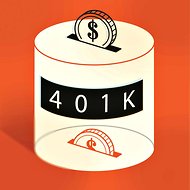“The screen says 20 cents, but according to the troika it’s zero,” he said angrily. He was referring to the three international lenders — the European Commission, the European Central Bank and the International Monetary Fund — that had devised the tough new program that requires shareholders, bondholders and depositors to share with European taxpayers the cost of bailing out Cyprus’s two biggest banks and preventing the government from going bankrupt.
“We were a member of the European family,” he continued. “Now it seems they want to push us out of the euro.”
For 20 years, Mr. Agrotis was a stockbroker at Bank of Cyprus, the country’s largest financial institution, and until the shares were recently wiped out, he and his family had much of their wealth tied up in the bank via shares, bonds, retirement funds and — now — frozen deposits. Under terms of the bailout, shareholders’ equity in the bank has been eliminated.
But while Mr. Agrotis and his compatriots may be feeling enormous pain, the broader reaction by investors in Europe and beyond was more or less muted on Thursday, as it has generally been since the Cypriot bailout negotiations burst into chaotic public view the weekend before last. For the broader world of finance, the prevailing view — for now, at least — seems to be that the implosion of this tiny island economy of 20 billion euros ($25.6 billion) need not wreak broader market havoc.
Within Cyprus, though, as the realization sinks in of how badly the national economy might be ravaged by the combination of capital controls on the flow of money out of the country and an indefinite freeze on the bulk of bank deposits, frustration is flaming into full rage. Some establishment figures are now openly discussing the option of leaving the euro currency union and defaulting on the country’s loans.
“Two weeks ago exiting the euro was never mentioned; now it is being widely discussed and a lot of people are considering it,” said Nicholas Papadopoulos, the chairman of the Cypriot Parliament’s finance committee, whom many here see as a future candidate for the presidency. “Europe has destroyed our banking system; now we need to consider all our options.”
Like Mr. Papadopoulos, Mr. Agrotis, who is 56, is no one’s version of an extremist. He is a solid member of Cyprus’s financial establishment, and his ancestors were founders of Cyprus’s most venerable financial institutions.
So convinced was he, even in recent weeks, that Bank of Cyprus was too big to fail that Mr. Agrotis even increased his stake, buying additional shares as the stock hit new low after new low.
Now, like just about everyone on this shellshocked island, he is groping for answers.
Turning from the carnage on his computer screen, Mr. Agrotis took off his glasses and rubbed at eyes bloodshot from the many sleepless nights he had spent poring over economic papers, analysts’ reports and political histories. It was all part of a fruitless search for a theory or precedent that might explain the terrible predicament that had fallen upon him and his countrymen.
On a computer screen, the downward fever chart is the symbol of loss in the world of money, equally understood by the day trader in his living room or the globe-trotting hedge fund investor.
But for Mr. Agrotis and many others in this tiny country of fewer than a million people, Bank of Cyprus’s plunging chart line means much more than the mere evisceration of a lifetime’s savings.
Article source: http://www.nytimes.com/2013/03/29/business/global/pain-begins-to-register-in-cyprus.html?partner=rss&emc=rss


